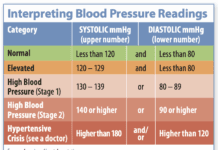Mistaken perceptions that healthier foods are also “less filling” might cause consumers to overeat such foods, even when calorie counts are clearly displayed. A trio of related experiments by University of Texas researchers suggest that products portrayed as “healthy” rather than “nourishing,” for example, tend to be viewed as less satiating. That caused participants to report greater hunger levels. When the nourishing properties of foods were emphasized instead, participants chose smaller portions.
Writing in the Journal of the Association for Consumer Research, the scientists commented, “While it is preferable for people to choose healthy food over unhealthy food, if people tend to over-consume foods labeled as healthy then the proliferation of health foods and nutrition labels could actually lead to an increase in calorie intake. Accordingly, the effects of this phenomenon would be especially detrimental if unhealthy foods are portrayed as healthy.” They cited the example of fast-food burritos, popularly perceived as healthy, that actually can contain as much as 1,000 calories.






















